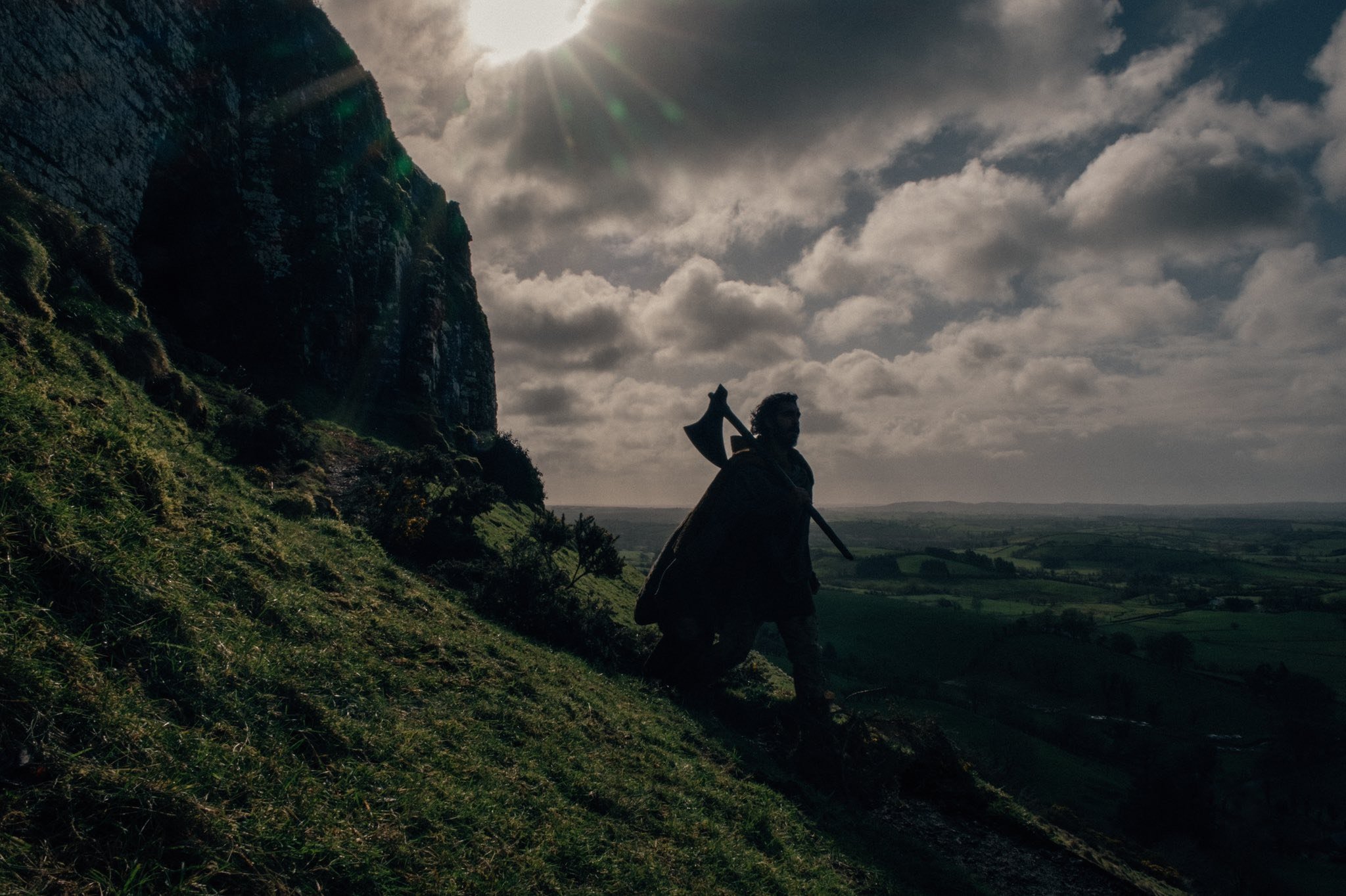Sir Gawain and the Green Knight is one of the richest medieval texts, a delightful story one could spend hours discussing with no possible end to the interpretations available in its verse. To watch David Lowery’s adaptation The Green Knight, with or without having read the Gawain poet’s brilliant work, is to witness a mess of scenes that infer depth but hold none.
To put the story simply: both tales cover the aftermath of Sir Gawain accepting a challenge from the Green Knight, who dares any knight to strike him with his axe if he will do the same in exchange in a year and a day. Upon beheading the Green Knight (who promptly picks up his head and moves on), Gawain must take a journey of growth through a series of challenges and offbeat experiences.
From the get-go, Lowery seems determined to set himself apart from this source material. In many adaptations, lack of fidelity is a benefit; take the contemporary sensibilities Whit Stillman and Greta Gerwig brought to their Love & Friendship and Little Women, respectively. But with The Green Knight, everything Lowery’s removed from or added to the text feels out-of-place. In excising key scenes from Sir Gawain’s journey he eliminates many of the beats that make navigations of temptation and fear so compelling (and ultimately fuel the character’s growth).
Dev Patel’s Gawain is reduced from a knight torn between chivalry and desperation to an outright coward, an uninteresting man placed in vaguely interesting situations, moving from scene to scene with little dramatic or emotional weight. Rather than offering up an intriguing drama with supernatural beats and a sense of humor, Lowery opts for a self-seriousness that’s exhausting to sit through, paired with aesthetics of what’s become known as “A24 horror.” Every new situation Gawain enters feels like someone switching gears when their last metaphor didn’t come across well enough. Each scene in The Green Knight is nothing but an empty metaphor, with most sequences feeling like someone padding out an unfinished story.
Though the film isn’t without moments of beauty. Some magical asides are intriguing despite their pointlessness, and the few times Lowery seems willing to remember the poem’s sense of humor gives necessary reprieve from drudgery. Alicia Vikander and Joel Edgerton are allowed more room for playfulness than Patel, doomed to barely engage with levity. Any time a rare bit of chemistry between the three actors happens Lowery returns to his sullen and antiseptic tone—a shame considering how temptation and sexuality (including a queer sensibility that becomes something more like gay panic onscreen) are key aspects to the original text.
Certain editorial choices, paired with stunning production design, are compelling enough. Despite an odd blue tinge (almost as though actively avoiding its core color), The Green Knight is often a beautiful movie to observe, the kind that will be screen-capped to death by One Perfect Shot and Tumblr alike, though it’s disappointing there wasn’t a greater sense of ambition with this production. As both its fantastic and thriller elements fall a bit flat it’s easy to wonder what filmmakers and designers with some penchant for flourish could have done here––imagine if it were anything like Eiko Ishioka’s collaborations with Tarsem Singh and Francis Ford Coppola. That kind of liveliness is exactly what Sir Gawain and the Green Knight deserves: something compelling and vibrant, with each and every single verse––from hunting scenes and seductive kisses to jubilant feasts and beheading games––contributing to Gawain’s flawed heroism.
The Green Knight is supposed to be a tale about what it means to be human; Lowery’s film is entirely void of that humanity. It’s a dour, bloated experience that not only fundamentally misunderstands the work of art being adapted, but has no interest in exploring or expanding upon what was already there. Rather than the intimacy and enthusiastic adventure of something like Peter Jackson’s Lord of the Rings trilogy (a filmmaker who would have clearly been a better fit for this work), Lowery chooses a more serious tone at every turn. So much potential for greatness, so much room for big swings in offering up a new interpretation of an old tale, nothing more than a massive disappointment.
The Green Knight is now in theaters.

